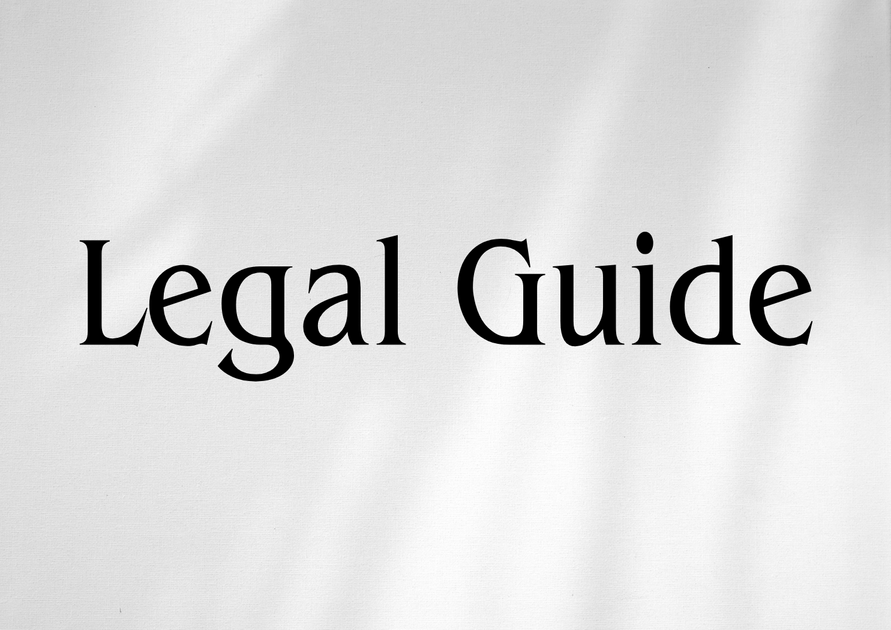Introduction
In today’s complex regulatory environment, conflict of interest regulations have become pivotal pillars underpinning business ethics and legal compliance, particularly in rapidly evolving jurisdictions such as Qatar. As the Gulf region experiences significant legislative development in corporate governance, understanding the nuances of conflict of interest rules has transcended theoretical importance. This is particularly true for UAE-based businesses and executives with Qatari operations or partnerships.
Recent legal updates—including Qatar’s amendments to its Commercial Companies Law—have redefined the landscape of director duties, disclosure obligations, and remedial mechanisms in cases of conflict. Such changes have important ramifications for UAE entities, board members, legal advisors, and compliance professionals managing cross-border interests.
This article provides an expert analysis of conflict of interest regulations within Qatari corporate law, their relevance for UAE stakeholders, and practical guidance for navigating these developments while minimizing risk. Drawing on official sources and regulatory commentary, we analyze statutory frameworks, offer real-world consultancy insights, and explore effective compliance strategies shaped by the latest legal evolutions in both Qatar and the UAE.
Table of Contents
- Overview of Conflict of Interest Regulations in Qatar
- Statutory Framework: Key Provisions of Qatari Corporate Law
- Identifying and Assessing Conflict Situations
- Board of Directors Duties and Disclosure Requirements
- Comparative Analysis: UAE v. Qatari Approaches
- Case Studies and Hypothetical Scenarios
- Risks of Non-Compliance
- Compliance Strategies for UAE Companies Operating in Qatar
- Conclusion and Best Practice Recommendations
Overview of Conflict of Interest Regulations in Qatar
Conflict of interest in the corporate context arises when a director, officer, or shareholder’s personal interests unduly influence—or appear to influence—the objective exercise of their duties to the company. In Qatar, the management of such conflicts is governed primarily by Law No. 11 of 2015 (Commercial Companies Law, as amended by Law No. 8 of 2021). These regulations enshrine transparency, accountability, and fiduciary responsibility at every level of corporate governance.
Qatari law both prohibits certain conflicted transactions outright and mandates strict disclosure protocols, reflecting international best practices. These obligations extend beyond board members to also encompass executive management and, in some cases, shareholders with significant influence. Such standards are directly relevant for UAE corporations or joint ventures with Qatari operations, requiring a robust understanding and a proactive compliance stance.
Statutory Framework: Key Provisions of Qatari Corporate Law
Relevant Regulations and Legal Sources
The cornerstone of conflict of interest regulation in Qatar is Law No. 11 of 2015 (Commercial Companies Law), as amended, with notable sections including:
- Article 109 – Sets out director obligations, prohibiting participation in transactions or business that conflicts with the company’s interests without board approval.
- Article 110 – Details mandatory disclosure procedures and the threshold for objecting transactions.
- Article 111 – Stipulates nullity of unauthorized transactions and consequences for breach.
Other references: The Qatar Financial Centre (QFC) regulatory regime for QFC-registered entities, and guidelines from the Qatar Financial Markets Authority (QFMA) for listed companies, both reinforce stringent conflict management duties. These frequently reference international norms, mirroring evolving standards in UAE federal legislation, including Federal Decree-Law No. 32 of 2021 on Commercial Companies.
Overview Table: Key Provisions
| Provision | Summary |
|---|---|
| Article 109 | Directors/proxies forbidden from having interests in deals unless board approval obtained; applies to related persons. |
| Article 110 | Full disclosure to board required before conflicted transactions; possible shareholder objection mandates withdrawal. |
| Article 111 | Non-compliant contracts may be voided; personal liability imposed on defaulting directors. |
Identifying and Assessing Conflict Situations
For multinational and regional organizations, understanding what constitutes a conflict is critical. Qatari law interprets conflict broadly, encompassing direct and indirect interests. Examples include:
- A director or key executive holding shares or managerial roles in a competing or supplier company;
- Board members benefiting personally from related-party transactions without proper vetting;
- Undisclosed family-owned vendor relationships;
- Direct or indirect financial interests in counterparties to company contracts.
Red Flags and Practical Assessment Tools
UAE companies engaged in Qatari ventures should implement screening mechanisms and due diligence protocols to detect the above conflicts early. Deployment of annual conflicts disclosures, third-party review of procurement processes, and training for directors are all considered best practice. Visuals such as process flow diagrams illustrating conflict reporting and escalation paths are recommended for internal compliance manuals.
Board of Directors Duties and Disclosure Requirements
Scope of Director Obligations under Qatari Law
Qatari law reflects a global trend of holding directors to stringent fiduciary and duty-of-care standards. Article 109 explicitly prohibits directors from competing with the company, entering related-party transactions, or prioritizing personal interests without full disclosure and written consent of the board. Even after such disclosure, transactions must be assessed for actual or perceived prejudice to the company’s interests.
Disclosure and Approval Mechanisms
Before any transaction where a conflict is reasonably anticipated, the following steps must be taken:
- Written notification to the board, detailing the nature, the third parties involved, and the director’s interest;
- Disqualification from voting on the relevant agenda item;
- Recording of the potential conflict and board decision in formal meeting minutes;
- In cases involving major transactions or listed companies, escalation to shareholder approval may be required, per QFMA guidance.
Penalties and Remedial Action
Failure to comply may result in the contract being declared void, with the director held personally and jointly liable for losses sustained by the company. Fines, disqualification from office, or litigation may also ensue, as outlined in Article 111 and mirrored by QFC and QFMA enforcement practice.
Comparative Analysis: UAE and Qatari Approaches
Business leaders commonly seek legal advice on how Qatari conflict of interest rules compare to those in the UAE, especially since both jurisdictions are members of the GCC with converging commercial expectations.
| Regulation | Qatar | UAE |
|---|---|---|
| Core Statute | Law No. 11 of 2015 (as amended) | Federal Decree-Law No. 32 of 2021 |
| Disclosure Standard | Written, prior to the transaction | Written, at next board meeting or as stipulated |
| Director Liability | Personal and joint liability | Personal, may extend to criminal penalties if public funds affected |
| Transaction Approval | Board consent, some escalated to shareholders | Board consent, with increased emphasis on minority shareholder protection |
| Family/Related Entities | Covered by law | Covered by law, more explicit on beneficial ownership |
Key Observations
- Both regulatory frameworks share essential similarities, ensuring transparency in conflicted transactions and upholding the principle of fair dealing. However, the UAE’s latest updates exhibit heightened scrutiny for public interest, minority shareholders, and beneficial ownership tracing, in line with global anti-corruption efforts.
- Qatari law is evolving toward more robust reporting and enforcement, especially for publicly listed companies and those operating within financial free zones.
Case Studies and Hypothetical Scenarios
Case Study 1: Undisclosed Vendor Affiliation
A UAE-based electrical solutions company expands into Qatar via a joint venture. A director of the Qatari subsidiary sits on the board of a supplier bidding for a significant contract. Without adequate disclosure, the contract is awarded. Upon internal audit, the undisclosed conflict is exposed. Result: The contract is declared void by the board; damages are claimed against the director, who also faces potential disqualification from future directorships in both Qatar and the UAE. The case highlights the cross-border exposure for compliance failures.
Case Study 2: Competing Business Involvement
An executive of a Dubai-based logistics firm launches a private logistics enterprise in Qatar, overlapping the business activities of the parent group. Even though the Qatari entity is separately incorporated, the executive’s undisclosed interest is revealed, leading to internal disciplinary action and contractual restitution to the affected group company.
Illustrative Table: Compliance Failure vs. Best Practice
| Scenario | Risk Result | Best Practice Outcome |
|---|---|---|
| Lack of disclosure | Contract voided, director sued | Timely disclosure, external review, board ratification |
| Board inaction | Regulatory fines, reputational loss | Clear board procedures, legal counsel engagement |
Risks of Non-Compliance
The risks associated with non-compliance can’t be overstated, especially for multinational and regionally active UAE businesses. These risks include:
- Legal consequences: Nullity of disputed contracts, personal liability, board or court-ordered restitution
- Regulatory penalties: Fines, suspension/disqualification, increased scrutiny from authorities
- Reputational damage: Loss of trust among investors, partners, regulators, and hostile media attention
- Operational impact: Delays in project delivery, contentious board dynamics, negative impact on financing
Compliance Strategies for UAE Companies Operating in Qatar
Checklist for Legal Compliance
| Action Item | Purpose |
|---|---|
| Annual conflicts of interest declarations | Early identification and mitigation |
| Director/executive training programs | Awareness and cultural alignment |
| Independent legal reviews for major transactions | Objective risk evaluation |
| Board and committee structure optimization | Effective conflict management |
| Process flow for disclosure/escalation | Clear communication and documentation |
Suggested Visual: A compliance process flow diagram outlining steps from initial conflict identification to final board resolution, adaptable for inclusion in governance handbooks.
Board and Leadership Engagement
The most effective compliance environments feature engaged, independent boards and leadership teams who prioritize integrity and ongoing education. UAE parent companies must extend such standards to their Qatari subsidiaries and joint ventures, ensuring harmonization of best practices.
Leveraging Technology and Legal Counsel
Automation tools (e.g., compliance management software) are increasingly deployed to track disclosures and flag potential conflicts. Coupled with regular external legal counsel reviews, these measures reduce human error and build regulatory goodwill.
Coordinating UAE and Qatari Compliance
Given the overlap of regulatory expectations, organizations should develop group-wide policies that harmonize the requirements of both jurisdictions. Legal counsel can tailor protocols to reflect nuances in thresholds, reporting formats, and escalation paths.
Conclusion and Best Practice Recommendations
Conflict of interest regulations in Qatari corporate law have grown stricter in response to international trends, with ramifications for domestic and cross-border business. This regulatory tightening mirrors the UAE’s own push toward heightened corporate transparency and governance—making compliance not only a legal necessity but also a commercial imperative.
For UAE-based businesses and in-house legal teams, the path forward involves elevating compliance standards, instituting robust disclosure protocols, and leveraging both legal advice and technology. Proactive engagement from boards and executives, alongside harmonized group policies, will mark the difference between simple box-ticking and true risk mitigation.
As both Qatari and UAE regulatory environments continue to evolve, maintaining compliance agility and a culture of transparency will remain the cornerstone of sustainable business in the region. Clients are advised to periodically review internal policies, offer ongoing director training, and engage legal professionals versed in both jurisdictions’ requirements.
By setting a gold-standard in conflict management, UAE organizations can ensure the integrity of their Qatari operations—protecting reputation, stakeholder trust, and long-term enterprise value.




